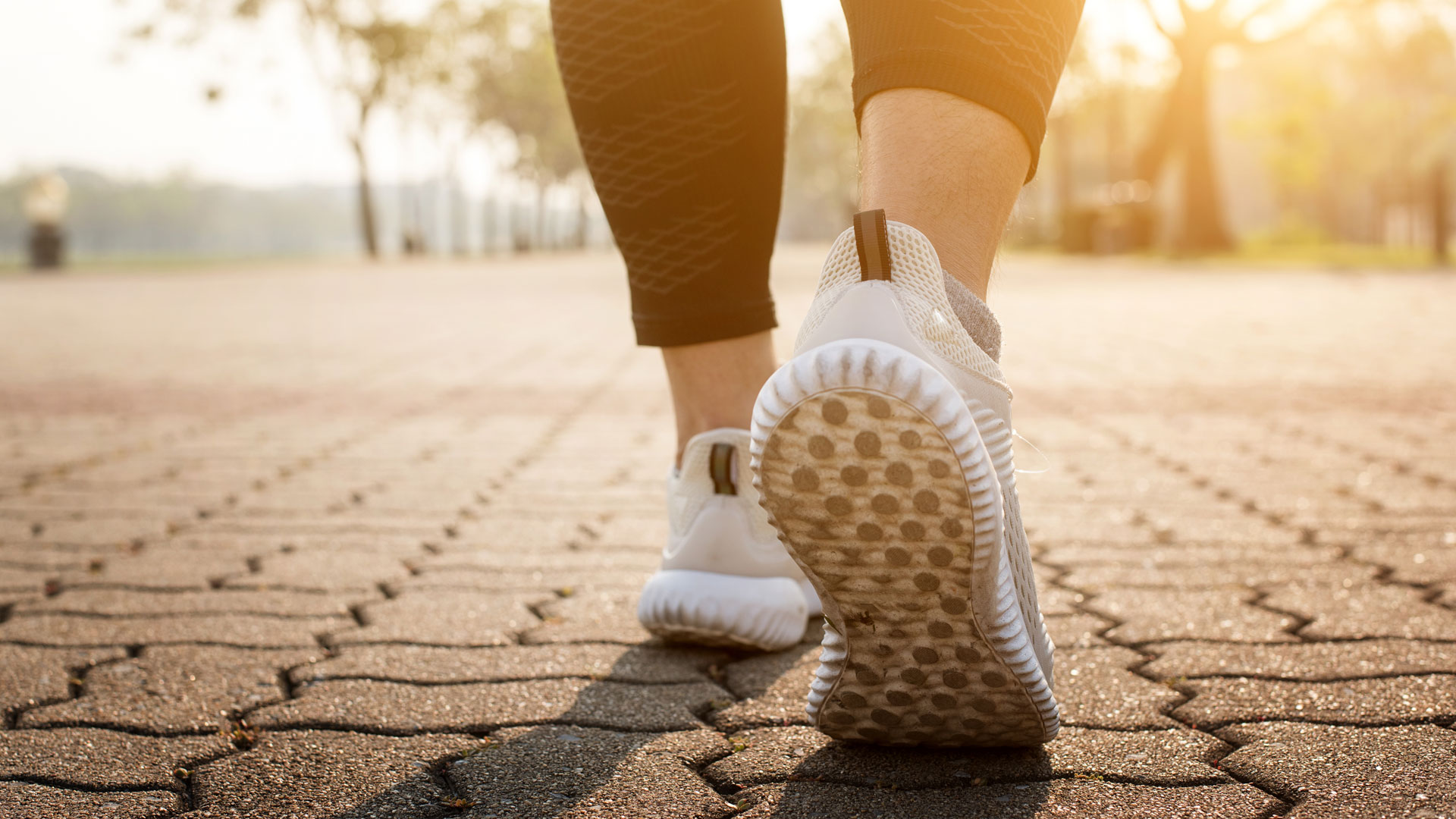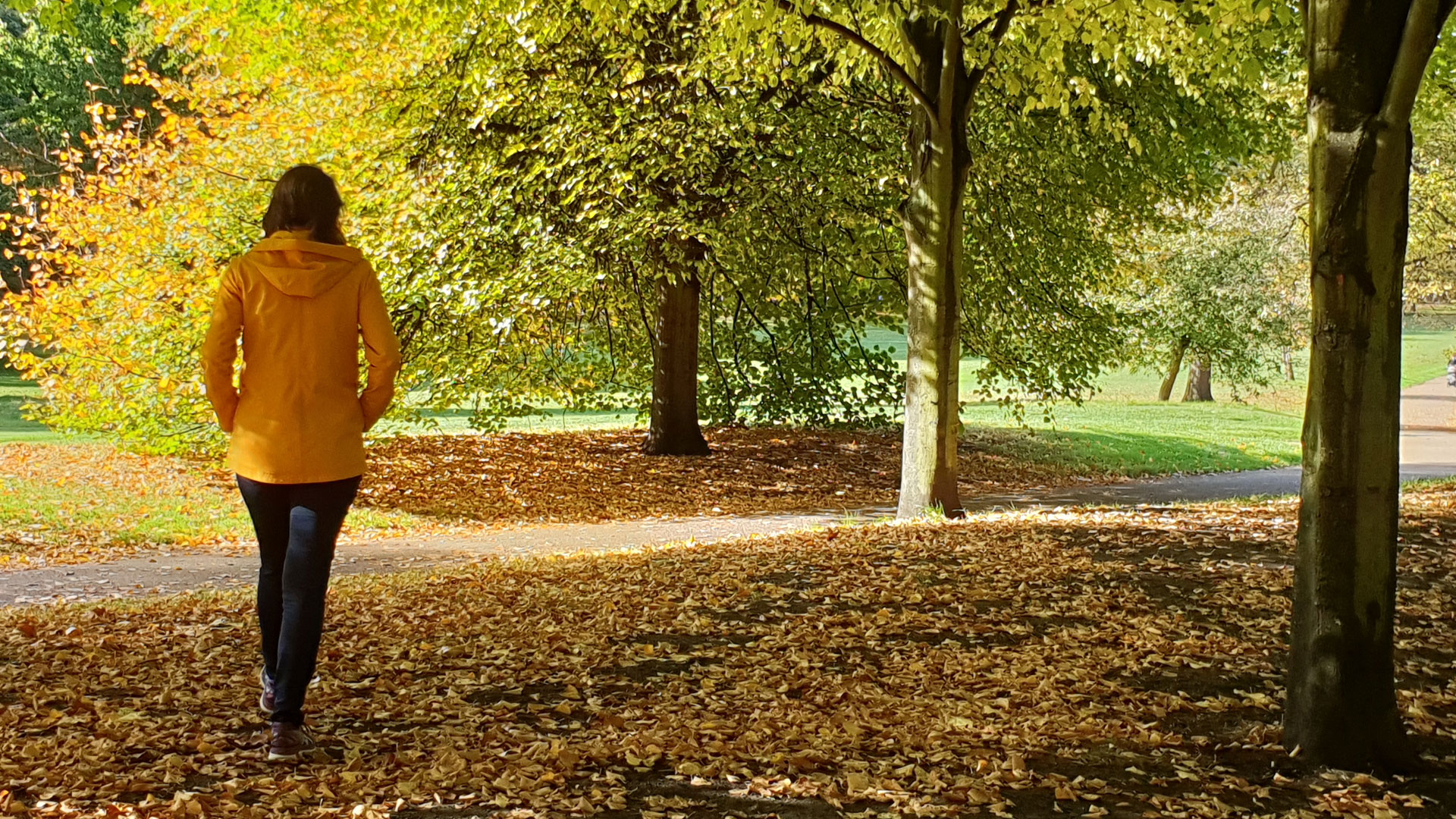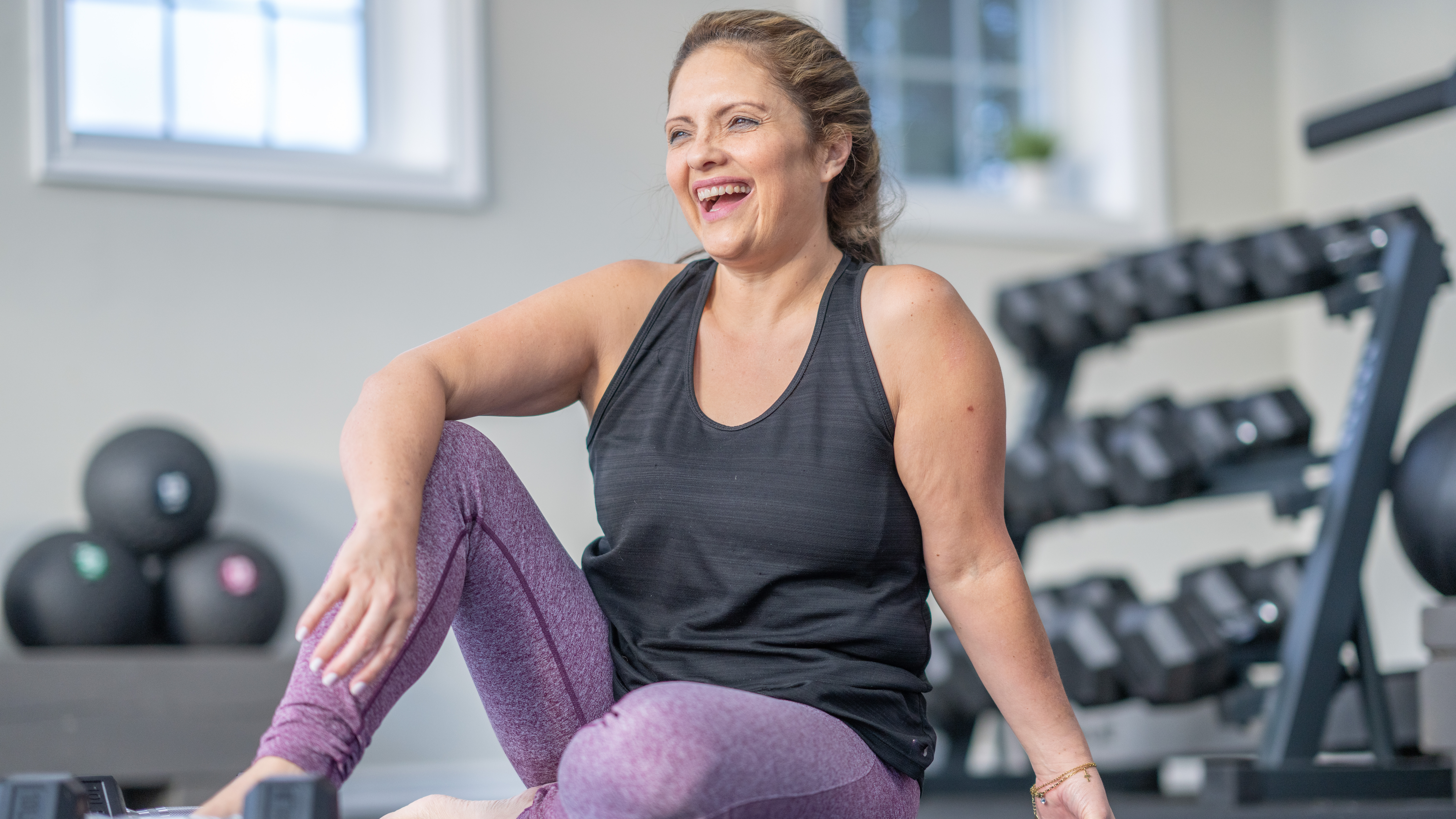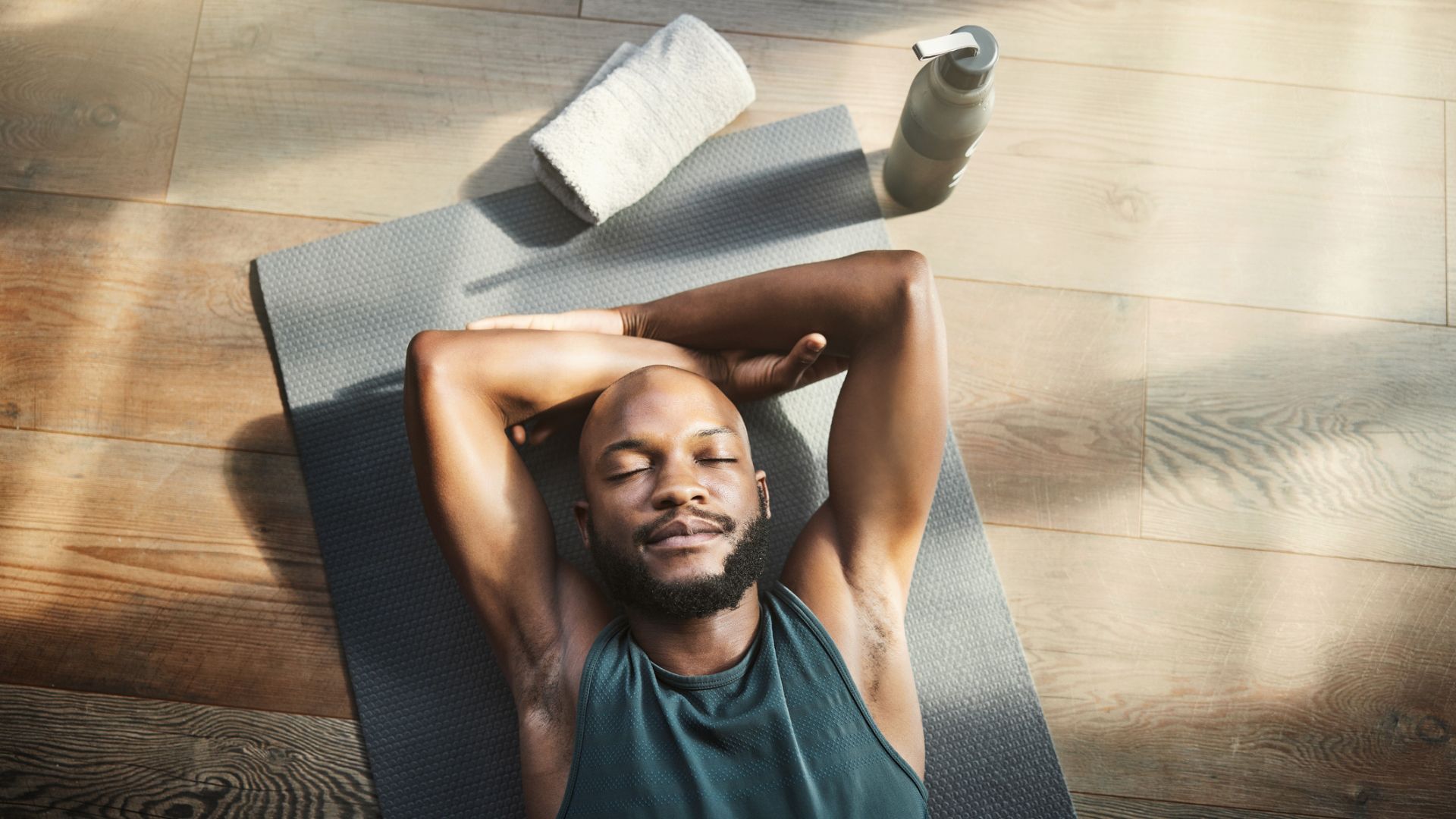Does walking help digestion?
We asked experts: does walking help digestion? Here’s what they had to say


Cardiovascular exercise and the power of movement have many positives. But does walking help digestion?
In the wellbeing world, it’s fair to say that our gut health is having a bit of a moment. From microbiomes to finding out how to improve gut health, our digestive tract is trending – and it’s for good reason. Having a healthy digestive system is a sure-fire way to boost your overall wellbeing. After all, it’s the way in which your body processes the all-important nutrients it needs to keep your body and mind working as how it should.
So, if bettering your digestive health is on the top of your to-do list, you’re probably looking for ways in which to improve it. And if you’re questioning can walking help digestion – you’re in luck. According to nutritionist Theresa Gentile, who is the national spokesperson for the How does walking affect digestion? Academy of Nutrition and Dietetics: “Walking after a meal can help digestion.”
To find out everything there is to know about how walking affects digestion, how long you should wait to walk after eating, and if there are any downsides to going for a stroll after you’ve eaten, we turned to science and asked experts to weigh in on the topic.
Plus, if you need all the gear to make your strolls more enjoyable, head to our guide of the best shoes for walking.
How does walking affect digestion?
Science tells us that walking after eating affects digestion by ‘increasing motility in the gastrointestinal tract’. But how does it do this?
According to Gentile: “Several studies have found that moderate exercise after a meal of liquids and solids accelerates gastric emptying by increasing the amount of time it takes food to move from the stomach to the small intestine.”
Get the Fit&Well Newsletter
Start your week with achievable workout ideas, health tips and wellbeing advice in your inbox.
Once food has reached your small intestine, it helps to digest the food coming from the stomach, absorbing all the good stuff – like nutrients and water – as it goes.
And this optimized overall digestion rate can have beneficial outcomes. As Gentile explains: “This quicker digestion may improve symptoms of heartburn and reflux in some people by letting more gas pass and decrease bloating.”
However, the rate at which walking can help with your digestion differs based on the intensity. So much so, that one study found that moderate walking increased gastric emptying by 15% more than light walking. But that’s not to say walking slowly doesn’t have advantageous rewards.

Is it good to walk after you eat?
Walking after a meal can be beneficial in several ways. Firstly, according to one journal, walking after you’ve eaten can ‘suppress the glucose increase after a meal’.
Gentile says: “After a meal, glucose floods the bloodstream and your body pumps out insulin to pull that glucose into your cells either to use immediately as energy or it's saved as storage for use at a later time.”
But as Gentile highlights: “This system doesn't work as efficiently in people with diabetes or insulin resistance so they have a prolonged amount of sugar in their bloodstream, which can damage blood vessels over time. However, walking can assist the process of glucose uptake in cells, improving insulin resistance.”
Nevertheless, the benefits of walking after eating don’t stop there. Going for a brisk walk after your meal can also help to burn more energy.
“Since walking decreases our dependence on insulin to shuttle glucose into muscles for energy, it decreases the amount of that anabolic, inflammatory hormone in our system,” Gentile tells us. “Insulin is our prime fat storage hormone, so the less of it needed to help glucose shuttle into our muscles, the better. “
And this has been scientifically proven. Researchers in one study found walking at a brisk speed for 30 minutes as soon as possible just after lunch and dinner leads to more weight loss than walking 30 minutes beginning one hour after a meal has been consumed.
At the same time, there is some research to suggest walking after eating can help with constipation, inflammatory bowel disease, and irritable bowel syndrome. So as science tells us, it can be very advantageous to walk after you eat.

Are there any downsides to walking after eating?
While it’s been proven that taking a brisk walk after eating can speed up your body’s natural digestive process, it’s unwise to participate in vigorous bouts of this cardiovascular fitness. Why?
“It appears that vigorous exercise may delay digestion by pulling blood flow from your gastrointestinal tract to your muscles,” Gentile tells us. “This would slow down the whole process of food emptying from the stomach.”
According to research, another downside to walking after eating could include bloating, indigestion, and nausea – especially if done too close after digesting food.
Want to know more about this form of exercise? Find out; does walking build muscle? Or, see which came out top when we put walking vs running to see which is better for weight loss.
Becks is a freelance journalist and writer with more than 7 years of experience in the field. She writes health and lifestyle content for a range of titles including Live Science, Top Ten Reviews, Tom’s Guide, Stylist, The Independent, and more. She also ghostwrites for a number of Physiotherapists and Osteopaths.
Health has been a big part of Becks’ lifestyle since time began. When she’s not writing about the topic of health, she’s in the gym learning new compound exercises. And when she’s not in the gym, she’s most probably reading.
-
 "If I could choose just five moves to future-proof my body, these would be it"—A trainer says this longevity workout will help you build lasting strength and mobility
"If I could choose just five moves to future-proof my body, these would be it"—A trainer says this longevity workout will help you build lasting strength and mobilityBy Lou Mudge
-
 I tried four exercises designed to get rid of shoulder knots and I was surprised by the results
I tried four exercises designed to get rid of shoulder knots and I was surprised by the resultsA yoga instructor recommends this routine for reducing tightness in your upper body
By Alice Porter